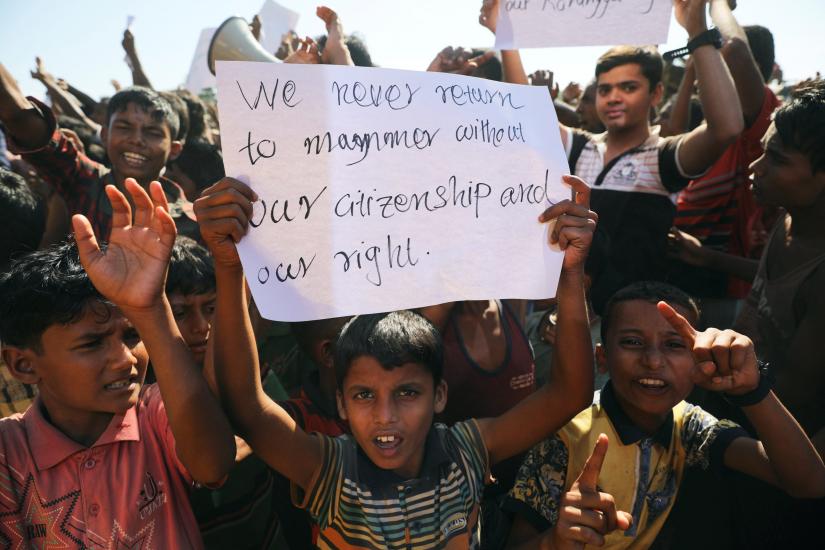 Bangladesh was prepared to repatriate an initial batch of Rohingyas to Myanmar on Thursday, but it hit a snag as none of them wanted to return.
Bangladesh was prepared to repatriate an initial batch of Rohingyas to Myanmar on Thursday, but it hit a snag as none of them wanted to return.
More than 700,000 Rohingyas fled a sweeping army crackdown in Rakhine state last year, according to UN agencies. The Rohingyas say soldiers and local Buddhists massacred families, burned hundreds of villages, and carried out gang rapes.
UN-mandated investigators have accused the Myanmar army of "genocidal intent" and ethnic cleansing.
Myanmar denies almost all of the allegations, saying security forces were battling terrorists. Attacks by Rohingya insurgents calling themselves the Arakan Rohingya Salvation Army preceded the crackdown.
Rohingya trace their presence in Rakhine back centuries. But most people in majority-Buddhist Myanmar consider them to be unwanted Muslim immigrants from Bangladesh. The army refers to the Rohingya as “Bengalis,” and most lack citizenship.
For years, they have been deprived from basic rights like livelihood, healthcare and education.
In recent years, the government has confined more than 100,000 Rohingyas in camps where they have limited access to food, medicine and education.
Bangladesh and Myanmar had several meetings for their repatriation. In late October, it was agreed that repatriation will begin.
The repatriation of the first group of 2,200 Rohingyas were set to officially begin on Thursday (Nov 15) and officials in Myanmar say they are ready for them.
Bangladesh has been maintaining that it will not force anyone to return and it has asked the UN High Commissioner for Refugees (UNHCR) to make sure those short-listed to return really want to go back.
In the last three days, the UN refugee agency interviewed the 67 families but none of them wanted to return.
The most serious concerns the Rohingyas have safety and security, national verification card, livelihood, freedom of movement, settlement plan and citizenship.
The say the issues were not addressed during their two rounds of meetings in Cox’s Bazar with Myanmar officials.
According to an estimate, over 25,000 Rohingyas were killed in Rakhine since late August last year. But the Myanmar authorities did not address the safety and security concern in the meetings held at the camps in Cox’s Bazar.


